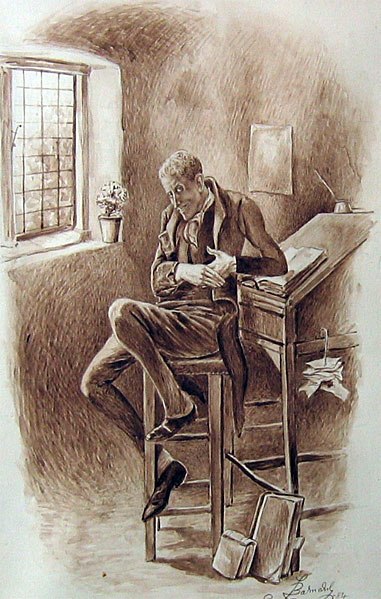In modern English, sycophant denotes an "insincere flatterer" and is used to refer to someone practising sycophancy. The word has its origin in the legal system of Classical Athens. Most legal cases of the time were brought by private litigants as there was no police force and only a limited number of officially appointed public prosecutors. By the fifth century BC this practice had given rise to abuse by "sycophants": litigants who brought unjustified prosecutions. The word retains the same meaning ('slanderer') in Modern Greek, French, and Italian. In modern English, the meaning of the word has shifted to its present usage.
Lysias, by Jean Dedieu
Uriah Heep, from Charles Dickens’ David Copperfield, is synonymous with sycophancy
Botticelli's illustration of Dante's Inferno shows insincere flatterers grovelling in excrement in the second pit of the eighth circle.
The fig sign is a mildly obscene gesture that uses a thumb wedged in between two fingers. The gesture is most commonly used to ward off the evil eye, insult someone, or deny a request. It has been used at least since the Roman Age in Southern Europe and parts of the Mediterranean region, including in Turkish culture. Some countries in Asia, Slavic cultures and South Africa use it too. It is used playfully in Northwestern Europe and North Africa, countries such as the US, Canada, Australia, Libya, Tunisia and Czech Republic to pretend to take the nose off a child.
The fig sign
Goya, Witches' Flight. A man folds his fingers into fig sign as a protective gesture.
A golden good fortunes pendant shaped as a fig sign from Hellenistic Period (Eskişehir Archaeology Museum)






